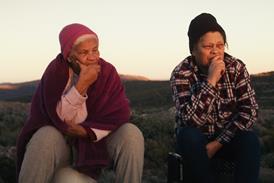As the film industry loses Tessa Ross to the theatre world, Channel 4 has to be very careful in its hires, Wendy Mitchell argues.
People move jobs, it’s a fact of life and also necessary to keep fresh energy in a business. But when Tessa Ross surprisingly revealed last week that she was departing Film4, it was something more than a job change. The UK industry is losing one of its shining lights to the theatre world. There is no way that Ross’s switch to the National Theatre can be seen as a good thing for the film world.
What we can do now is pay tribute to her legacy while wondering what will be the immediate future of Film4.
I hold my hands up here to say I didn’t have any prior knowledge of her departure — I was as surprised as anyone when the press release came into my inbox. I don’t know why she left — it could be simply that she was ready for a new creative challenge after 13 years at Channel 4 and Film4; it doesn’t seem to be internal politics.
What seems unfortunate is the timing — the news comes less than three months after Film4’s deputy head Katherine Butler departed for RAW. Her position hasn’t been filled yet, which means now that Channel 4’s David Abraham has the top two vacancies at Film4 to fill (he tells Screen he’s confident about the transition). The outfit has little wiggleroom — the wrong hire(s) could wipe out a decade of reputation building. Of course, there are stalwarts like Sue Bruce Smith (who rejoined a decade ago) and Sam Lavender (who joined in 2006) who will be key in the transition — still, the top job is especially crucial at a creative, talent-spotting outfit like Film4.
Ross leaves many legacies behind (see tributes here) but for me there’s one particular ‘case study’ that I will remember her for — that’s taking a chance on artist Steve McQueen with a tough-sell feature debut, 2008’s Hunger; a tough-sell sophomore story of a sex addict, 2011’s Shame; and a tough-sell slavery story, 12 Years a Slave. Would Steve McQueen’s film have won the best picture Oscar had he not been nurtured and supported by Tessa Ross in the past decade? I’d argue not.
Offscreen, her other legacy is also one that shows us that a powerful female executive doesn’t have to be the ballbreaking stereotype. Ross was more of a friendly‘earthmother’ type on the exterior — but make no mistake she had a business vision that she fought for. She built up her role within Channel 4 to have more autonomy, so that she didn’t need powers above her to greenlight every Film4 position. Her successor has to maintain that power within Channel 4 to be as successful; a kind of film figurehead mired in TV politics would be a disaster.
It also should be said that it’s an exciting opportunity for Channel 4 and Film 4 to kickstart its next era. I’m hugely excited (and a bit anxious) to see who steps into Ross’s shoes — this person from day one will have an enormous amount of power in the British film industry. Alongside the BFI and BBC Films, Film4 is absolutely one of the three cornerstones of support that holds up the British film industry.
Film4 funding isn’t something that ticks boxes, a lot comes down to personal taste. With Film4 arguably backing more first-timers and new visions than BBC Films does, the Film4 head is an essential tastemaker (along with their Film4 colleagues) deciding which new filmmakers get big breaks — if this person is more of a comedy expert than Ross, for instance, we’ll see more comedies from Film4.
The new Film4 head will have the tricky job of making their own impact while building on the looming legacy of Tessa Ross.

























3 Readers' comments